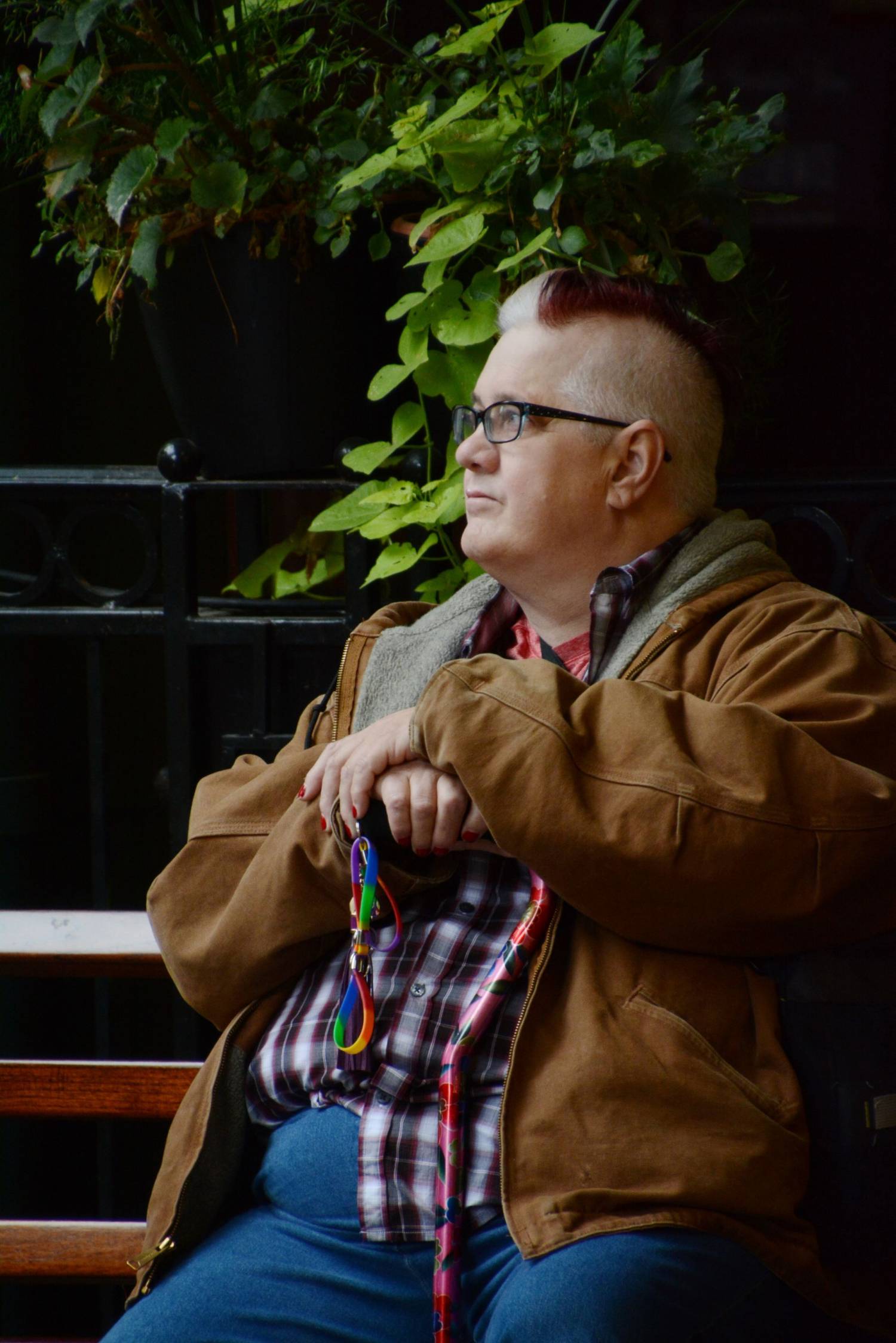Lambda Legal today argued in federal district court that the U.S. State Department erred when it refused to issue a passport to Dana Zzyym, a U.S. citizen and Navy veteran who is intersex and does not identify as male or female.
The State Department denied Dana’s passport application because Dana could not accurately choose either male or female on the passport application form, and the form does not provide any other gender marker designation.
From Lambda Legal Staff Attorney Paul D. Castillo:
Dana Zzyym served our country proudly as a member of the U.S. Navy. And yet, Dana was denied a passport, an essential identity document, and is in effect under nationwide house arrest just for being honest on a passport application.
This country is better than that. The discriminatory State Department policy makes it impossible for a person who is inherently neither male nor female to list their gender.
Ironically, the State Department would rather have Dana lie about their gender on a passport application than consider viable solutions already successfully implemented by several countries around the globe.
Dana, who uses the gender-neutral pronouns “they,” “them” and “their,” was born with ambiguous sex characteristics. Shortly after Dana’s birth, their parents and doctor decided to raise them as a boy. As a result, Dana underwent several irreversible, painful and medically unnecessary surgeries that didn’t work, traumatized Dana and left them with severe scarring.
It was only many years later, after serving six years in the U.S. Navy and then attending Colorado State University, where they also worked as a custodian, that Dana began researching the surgeries and came to understand they had been born intersex. Drawing on personal experience, Dana began educating the public about issues facing intersex people.
Dana currently serves as associate director for the United States affiliate of the Organisation Intersex International (OII-USA).
As part of their work, Dana was invited to attend the International Intersex Forum in Mexico City in October, 2014, at which time Dana applied for a U.S. passport. The application requires that the applicant select a gender marker of either ‘male’ or ‘female.’ It also requires first-time applicants to submit evidence of citizenship, such as a birth certificate, which in Dana’s case lists their sex as “unknown.”
But, notwithstanding the information on their birth certificate and the fact that Dana’s doctors with the U.S. Department of Veterans Affairs confirm their gender as intersex, Dana’s application for a passport was denied.





